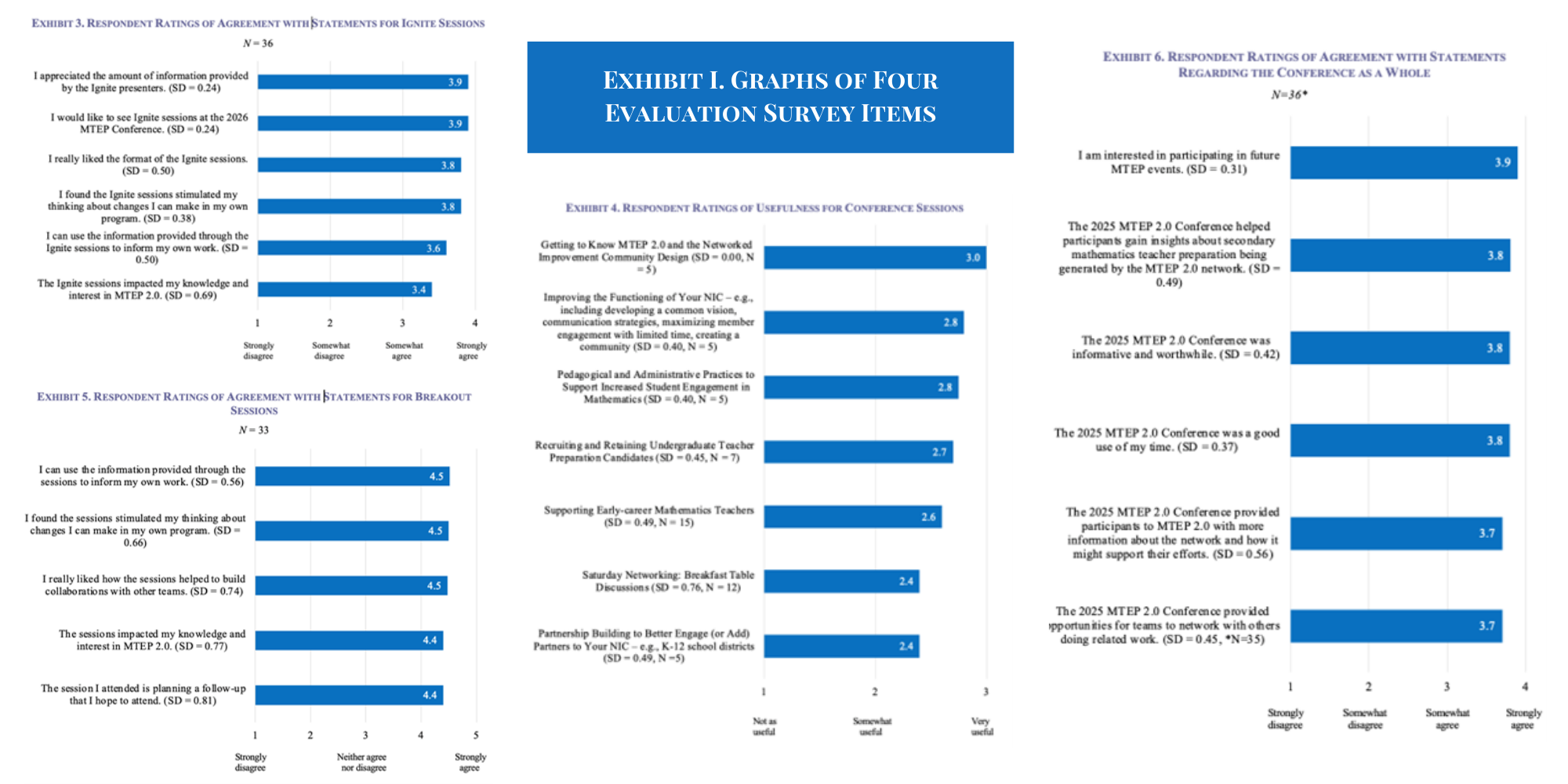
by John T. Sutton, PhD, MTEP project evaluator
The Mathematics Teacher Education Partnership (MTEP) 2.0 provides a coordinated research, development, and implementation effort for secondary mathematics teacher preparation programs to promote research and best practices in the field. The partnership addresses the significant national shortage of well-prepared secondary mathematics teachers who can support their students in achieving the Common Core State Standards for Mathematics.
The 2025 MTEP 2.0 Conference-within-a-conference was held from Feb. 6-8 as a professional activity that took place in person (51 participants) at the Grand Sierra Resort in Reno, Nevada, and virtually via Zoom (11 participants). The conference-within-a-conference was conducted as an evening meeting on Thursday and a breakfast networking discussion meeting on Saturday, both of which took place at the same facility during the Association of Mathematics Teacher Educators (AMTE) Annual Conference. The participants joining in the conference-within-a-conference represented 16 MTEP teams comprised of different institutions, which included universities, colleges, state departments of education, K-12 school districts, NSF-funded projects, and private institutions. The meeting was carried out with support from multiple NSF-funded projects and individual institutional supports. The NSF-funded Using Networked Improvement Communities to Design and Implement Program Transformation Tools for Secondary Mathematics Teacher Preparation (NIC-Transform) project (Award #s 2141730 and 2141737) served as the conference planning and implementation lead projects.
At the completion of the 2025 MTEP 2.0 Conference-within-a-conference, participants were invited to complete a survey and answer questions regarding the logistics and usefulness of the conference, session ratings, the progress toward meeting the conference goals, the timing of the conference, and topics and future directions for MTEP 2.0 activities. Survey questions were scaled and open-ended. The survey was sent to 62 conference participants via email at the conclusion of the conference on Feb. 8. Participants were asked to complete the survey by close of business on Feb. 14. Of the 62 conference participants (51 in-person and 11 virtual), 36 (32 in-person and 4 virtual) responded to the survey, yielding a 58% response rate, which is a little higher than the average rate for online survey responses. Of the 36 respondents, the majority (72%) were mathematics teacher educators (college or university). The other data identified a state educator, a math teacher educator at a nonprofit, a professional learning provider, and a teacher on special assignment (math specialist).
Respondents were asked to identify their purpose for attending the conference-within-a-conference. Thirty respondents indicated they were active members of MTEP teams, and six respondents indicated they were interested in learning more about MTEP. The logistics for the conference were all rated between excellent and good. As seen in Exhibit 1, the conference evaluation report shows all statements and sessions were rated highly. Exhibit 1 contains graphs for four evaluation items on the survey. Participants rated all six statements regarding the Ignite sessions (Exhibit 3, upper left) between "somewhat agree" and "strongly agree." Ratings of agreement with statements for breakout sessions (Exhibit 5, lower left) were all rated between "somewhat agree" and "strongly agree." The conference sessions (Exhibit 4, middle) were all rated between "somewhat useful" and "very useful." Finally, ratings of agreement with statements for the conference as a whole (Exhibit 6, right) were rated between "somewhat agree" and "strongly agree."
In addition to the scaled items, respondents were asked a limited number of open-ended questions at the end of the survey. Responses varied by question but indicated appreciation for the conference-within-a-conference and various sessions, MTEP 2.0, and useful insights and ideas for the next conference.